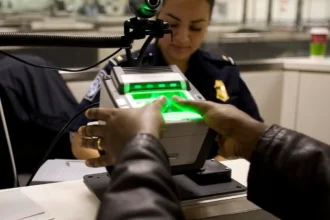The concept of human rights is continually evolving. One of the most profound shifts in this landscape is the recognition of development as an inalienable human right. This perspective, far from being a mere theoretical construct, has profound implications for how we understand democracy, governance, and the role of the state in fostering a just society.
The traditional view of development has often been synonymous with economic growth. However, the 1986 Declaration on the Right to Development by the United Nations General Assembly marked a significant departure from this narrow understanding. It recognized development as a multifaceted process encompassing not only economic but also social, cultural, and political dimensions.
In this new paradigm, development is not merely about increasing GDP or industrial output. It’s about expanding freedoms, enhancing sustainability, and ensuring that all members of society have the opportunity to participate fully in the life of their community. It’s about recognizing that economic growth, while important, is not an end in itself but a means to a broader human flourishing.
The Brazilian Experience: Constitutional Commitment to Development
What makes this view of development particularly compelling is its close connection with democracy. The right to development is not something that can be handed down from on high by benevolent rulers. It requires active participation from the people, who must be protagonists in the process.
In Brazil, this democratic imperative is enshrined in the Federal Constitution of 1988, which recognizes national development as a fundamental objective of the Republic. This is not a vague or programmatic statement but a concrete commitment that requires specific normative structuring.
Brazilian democracy offers various tools to its citizens to ensure the constitutional realization of developmental objectives. These include voting, referendums, plebiscites, and popular initiatives of laws. These mechanisms are not mere formalities but vital instruments that empower the people to shape their destiny.
Implications for Governance and Citizen-State Relationship
The Brazilian experience offers valuable insights into how the right to development can be translated into practice. The recognition of development as a principle in the Federal Constitution of 1988 was not an isolated act but part of a broader movement to see development as an inalienable human right.
This perspective has profound implications for how we understand governance, the role of the state, and the relationship between citizens and their government. It challenges us to see development not as a top-down process driven by technocrats but as a participatory endeavor where the people are active agents.
Challenges and Complexities: Translating Rights into Practice
The Brazilian case also illustrates the challenges and complexities of implementing this right. Recognizing development as a human right is not a panacea that will magically solve all problems. It requires careful thought, deliberate action, and a commitment to democratic principles.
The recognition of development as a human right is more than a theoretical construct. It’s a powerful idea that challenges us to rethink how we approach governance, democracy, and the role of the state.
It calls us to see development not as a narrow economic goal but as a comprehensive human right that encompasses political, civil, economic, social, and cultural aspects. It demands that we recognize the people as active participants in the process, not passive recipients of benevolence from above.
In a world where inequality, injustice, and exclusion remain persistent challenges, the right to development offers a path forward. It provides a framework for thinking about how we can build a more just and equitable society where every individual has the opportunity to thrive.
A Framework for Equitable Opportunity and Human Flourishing
The Brazilian experience, with its successes and challenges, offers valuable lessons for other nations seeking to translate this right into practice. It reminds us that the right to development is not a mere slogan but a living principle that requires commitment, creativity, and courage.
As we move forward, let us embrace this broader understanding of development. Let us recognize that development is not just an economic goal but a human right, a democratic imperative, and a moral calling. Let us work together to build a world where every person has the opportunity to live a life of dignity, freedom, and fulfillment.
Adapted from an academic study for a wider audience, under license CC BY NC SA 3.0.









